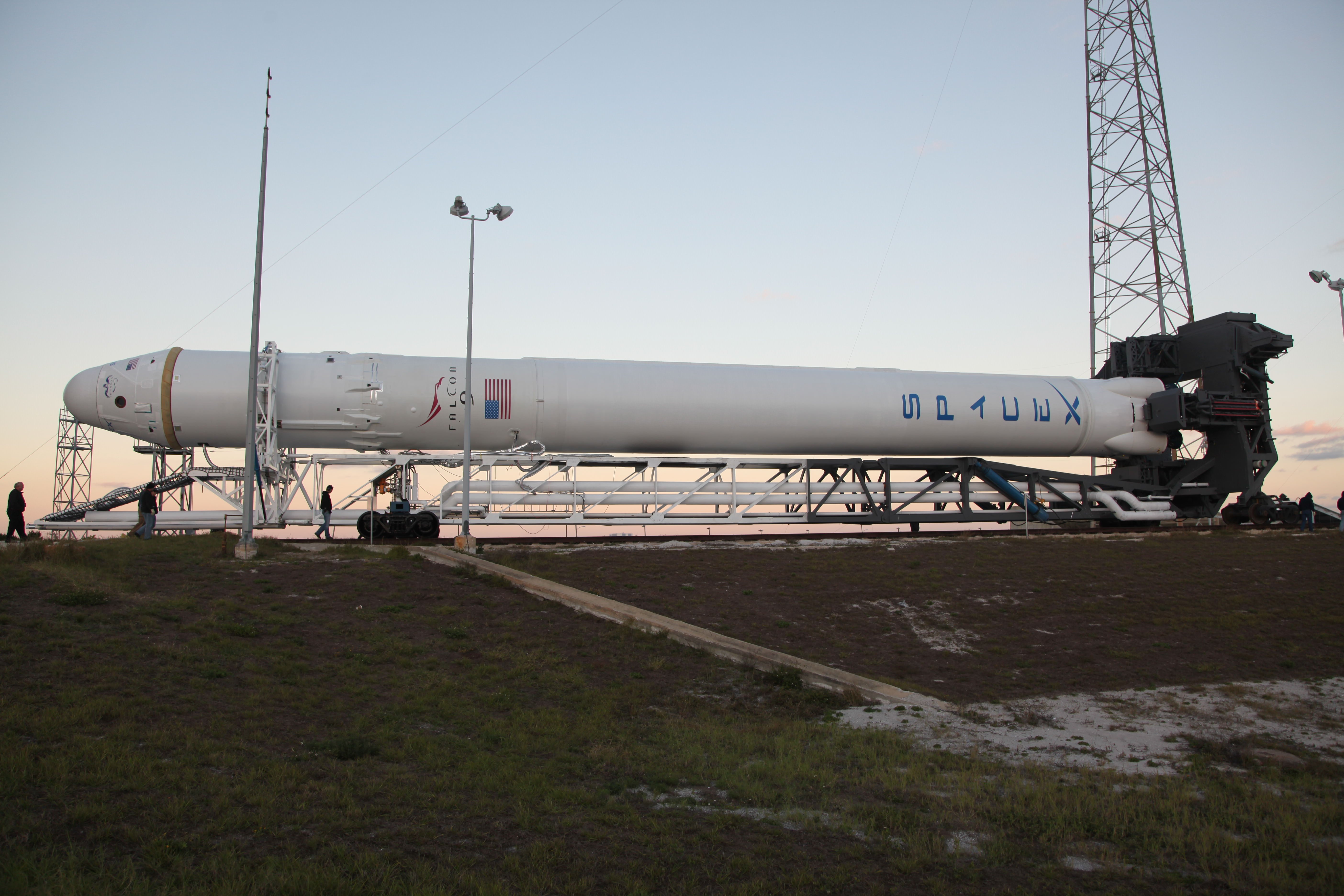A static test firing of the SpaceX Falcon 9 rocket was cut short as computer systems shut down the first-stage engines before the test was complete. The firing was only going to last two seconds, but the engines ran for 1.1 sec due to high engine chamber pressure, according to SpaceX. Space News reported that engineers are analyzing the data and that a second attempt is likely to occur tomorrow, Dec. 4. This abort occurred just four days before SpaceX is schedule to conduct the maiden launch of its Dragon space capsule on board the medium-class Falcon 9.
This video is from SpaceX's webcast of the firing and unfortunately is a bit jumpy.
The first-stage firing was part of a dress rehearsal conducted in preparation for the planned Dec. 7 launch, the first of three increasingly complicated flight demonstrations of Falcon 9 and Dragon under the company's Commercial Orbital Transportation Services (COTS) agreement with NASA.
[/caption] In a press release from SpaceX from Dec. 2, the company said the rehearsal would "exercise the countdown processes and end after the engines fire at full power for two seconds, with only the hold-down system restraining the rocket from flight."
After the test, SpaceX said they would conduct a thorough review of all data as engineers make final preparations for the upcoming launch.
The rockets uses kerosene and liquid oxygen, and the nine Merlin engines generate one million pounds of thrust in vacuum.
The $278 million COTS agreement has SpaceX developing and demonstrating hardware capable of ferrying cargo to and from the International Space Station.
We'll post more information about the abort as it becomes available.
 Universe Today
Universe Today
